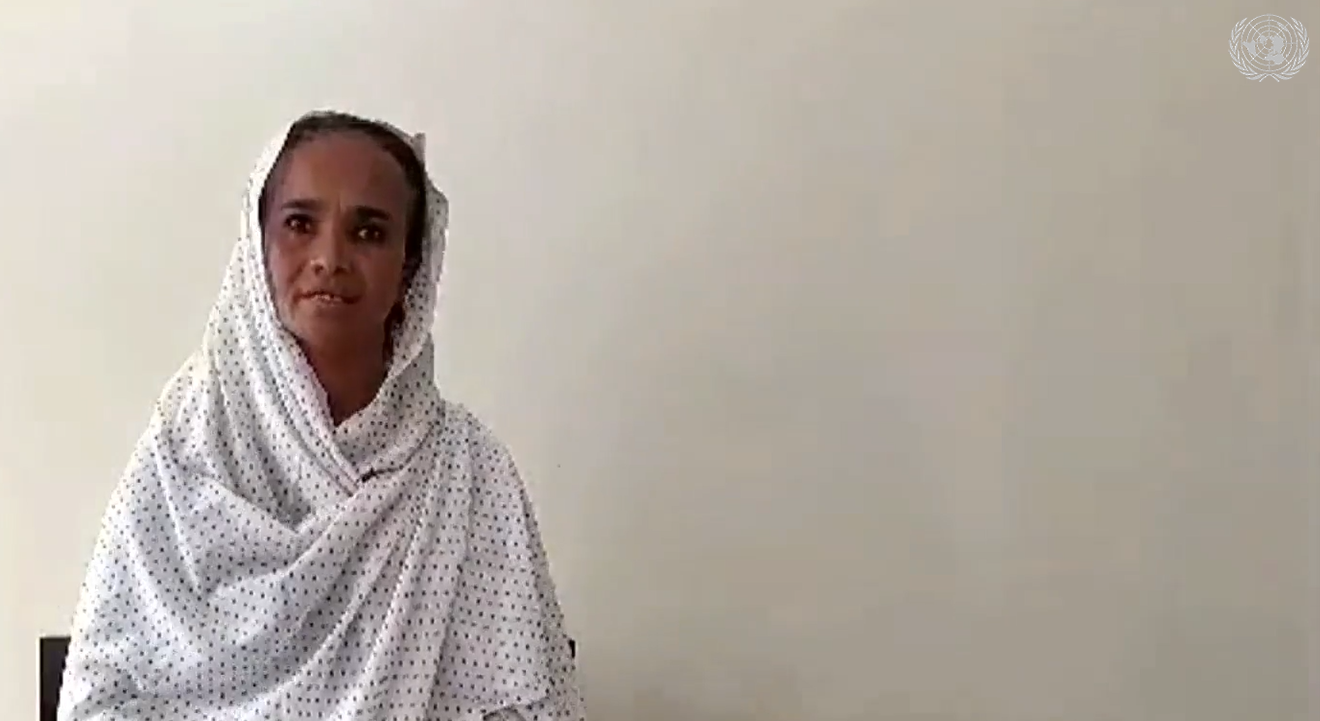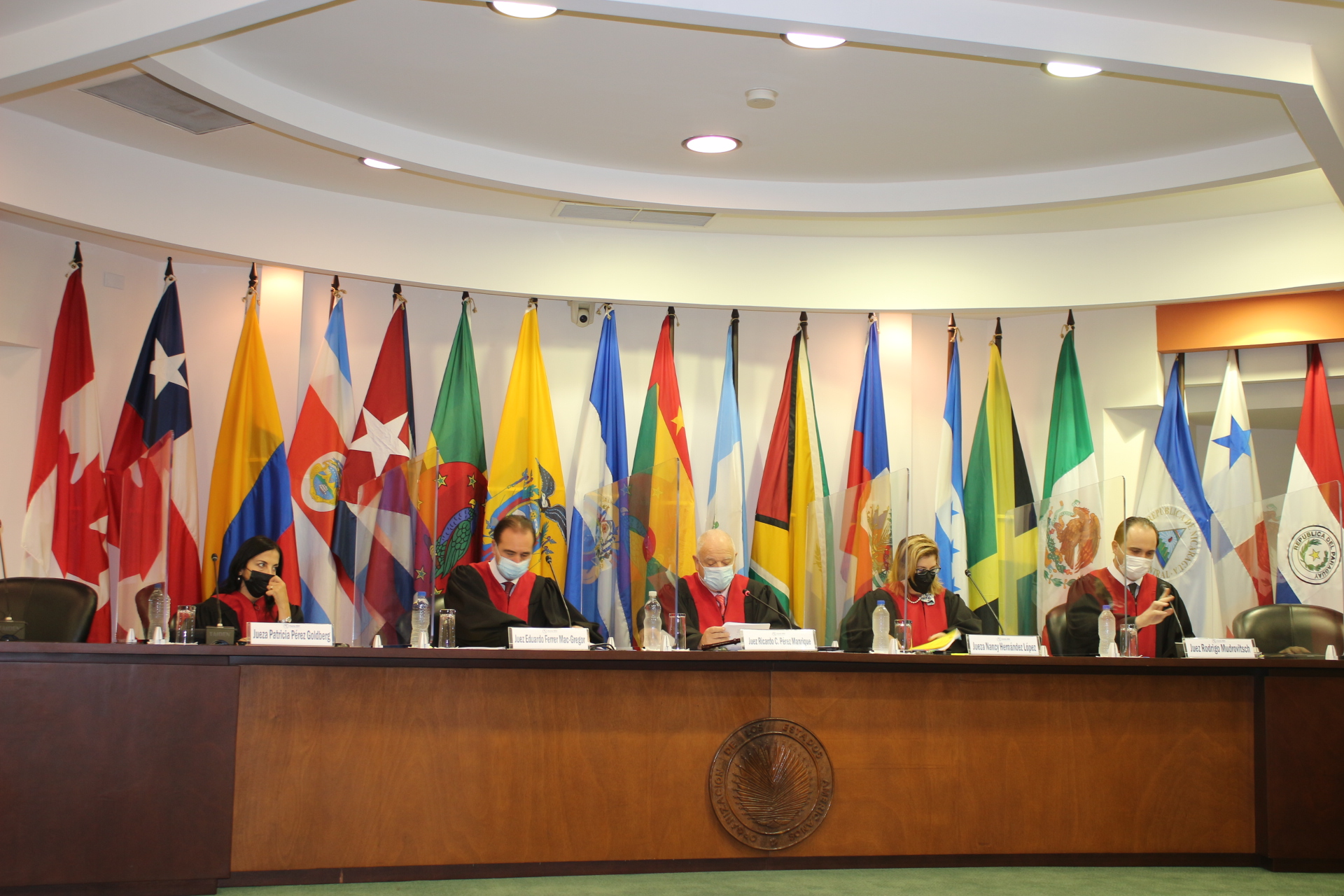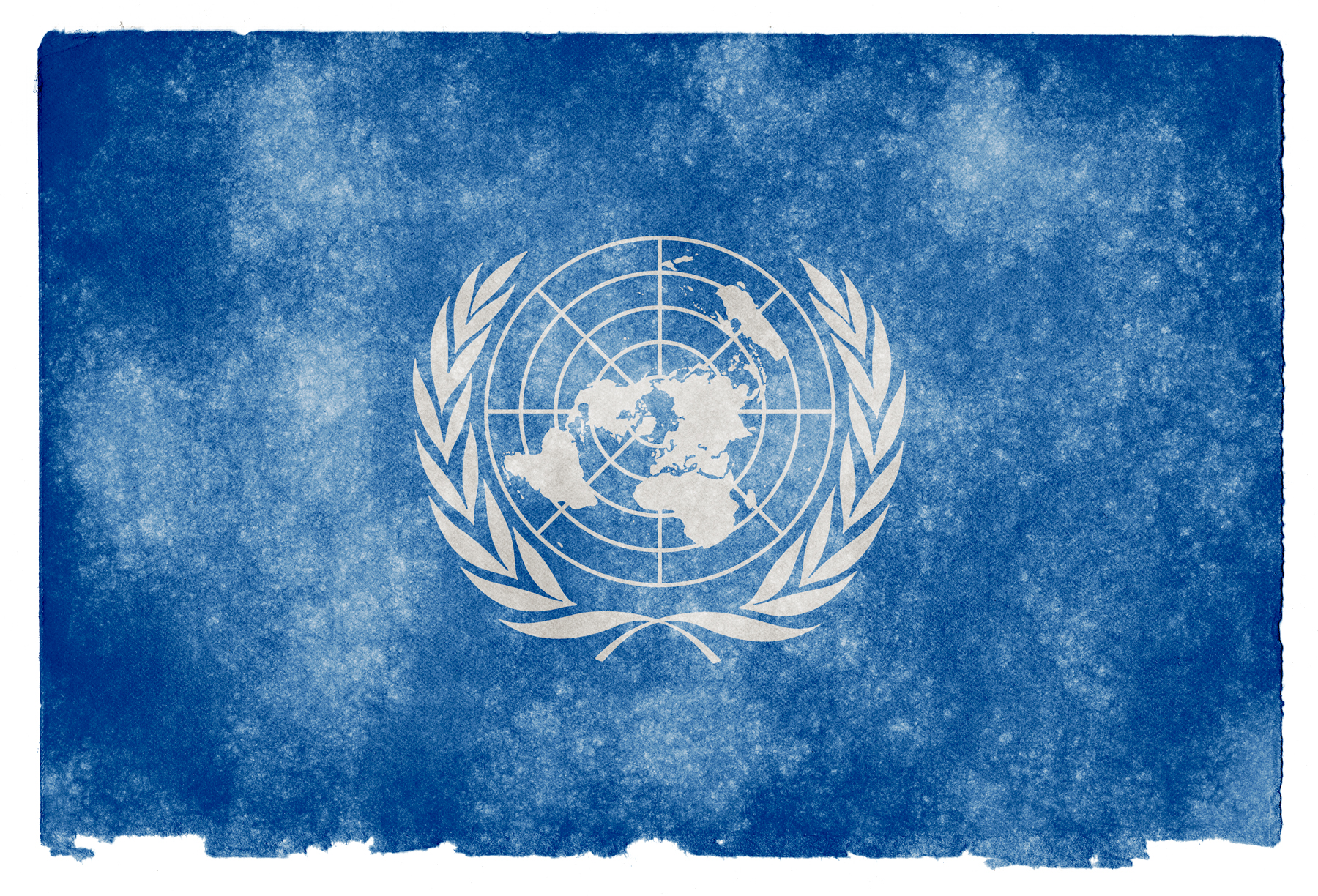
Sudan: UN Security Council must take urgent action to protect civilians
Over a hundred civil society groups and organisations urge the UN Security Council to take urgent action to protect civilians in Sudan. Read the joint letter below.
UNWEBTV

During the Human Rights Council's debate on the High Commissioner's report detailing the horrific violations and abuses by warring parties in Sudan, ISHR supported Sudanese woman defender Tahani Abbas to engage with the HRC. Read the full joint statement and key messages below.
At the 55th session of the Human Rights Council, during the debate on Sudan, Tahani Abbas, woman human rights defender from Sudan, delivered a joint statement on behalf of ISHR, Sudanese Women Rights Action, Nora Center for Combatting Sexual Violence, and WHRDMENA Coalition.
Read the full statement below and watch it here.
My name is Tahani Abbas, I am from Sudan and I have just fled the horror of the war expansion to Aljazeera State. I have lost everything in my possession, I was threatened, and intimidated. I traveled for 5 days just to get to the closest safe place inside Sudan.
Sudan now is the largest displacement crisis in the world as half of the population is on the verge of famine.
The ongoing conflict in Sudan [between the Sudanese Armed Forces (SAF) and the Rapid Support Forces (RSF)] since 15 April 2023 has created a major humanitarian and human rights crisis raising concern from Sudanese activists and international organisations including severe violations of International Humanitarian Law (IHL) amounting to war crimes, closed civic space, attacks on freedom of expression, CRSV, communication disruptions, and threats against Women Human Rights Defenders (WHRDs).
On 15 December 2023, the attack on Wad Madani caused a large loss of resources and displacement of WHRDs like me, many of whom are still trapped in Sudan. Civil society organisations, including women’s rights groups, are targeted, criminalised and have lost all of their resources and assets they courageously built after fleeing Khartoum.
On 7 February 2024, there was a complete communication shutdown causing WHRDs the inability to document and report atrocities as well as disruption of women’s rights groups access to mobile banking apps that facilitate money transfers to operate and secure the protection of WHRDs.
On 9 February 2024, the RSF and affiliated tribal militias brutally killed more than 60 civilians including women and children in Habila and surrounding areas near Dillinj City in Nuba Mountains/South Kordofan State in Sudan. More than 10 thousand people were displaced and 5 villages were destroyed in the attack. Members of RSF forces posted a video showing graphic images of the killed civilians and survivors of the massacre described horrific violence, including abductions of civilians, extra judicial killings, torture and other war crimes. The internet shutdown and fighting in the area prevented access to details of the attack.
The SAF launched an attack on human rights defenders, humanitarian workers, volunteers, journalists, and peace activists. Aid groups and first responders faced rising restrictions of movement and supplies. The Sudanese authorities launched a mobilisation campaign to arm civilians in various States under SAF control. The widespread arms in the hands of civilians have led to unprecedented threats to women and peace and security, including gender-based violence (GBV) in the areas outside of the fighting zones. RSF continued to arrest civilians, loot properties, and perpetrate systemic sexual violence across the areas under their control. Since the war erupted, four WHRDs have been killed, two of whom were journalists. At least 11 women health workers were killed as well.
We urge States to:
The debate on Sudan at this HRC session highlighted the gravity of the situation in the country. Many States including Australia, Canada, New Zealand, Ireland, Morocco, Japan, Uganda, Iraq, Belgium, Tunisia called for a cease fire. Many States including Gulf countries, Egypt, Netherlands, Ireland, Montenegro, Japan, Albania highlighted as well as the urgency to provide humanitarian aid.
The High Commissioner and designated Expert underscored the urgency for justice, accountability, and for immediate cessation of hostilities. The conflict’s impact on the population is detailed in the report, including displacement, food insecurity, and widespread human rights violations. Several States including Norway, UK, USA, Germany, Australia, Canada, New Zealand, Italy, Montenegro, Belgium expressed support for the High Commissioner’s report. States including Norway, UK, USA, Germany, Switzerland, France, Ireland, Monaco urged all parties to cooperate with the FFM.
States also urged for independent investigations to ensure that all perpetrators of war crimes, and human rights violations face accountability. States also highlighted concerns about the deterioration of human rights and humanitarian conditions, along with calls for protection of human rights defenders.

Over a hundred civil society groups and organisations urge the UN Security Council to take urgent action to protect civilians in Sudan. Read the joint letter below.

In a series of groundbreaking rulings in early 2024, the Inter-American Court of Human Rights and the Constitutional Court of Colombia set new precedents that significantly enhance protections for human rights defenders across Latin America.

In the face of multiple human rights crisis in the region, as well as significant political changes, defenders spoke at the Human Rights Council’s 55th session about the realities they have faced, calling for greater action and new mechanisms, and noting that political expediency shouldn't trump the objective assessment of the need for Council action on country situations.